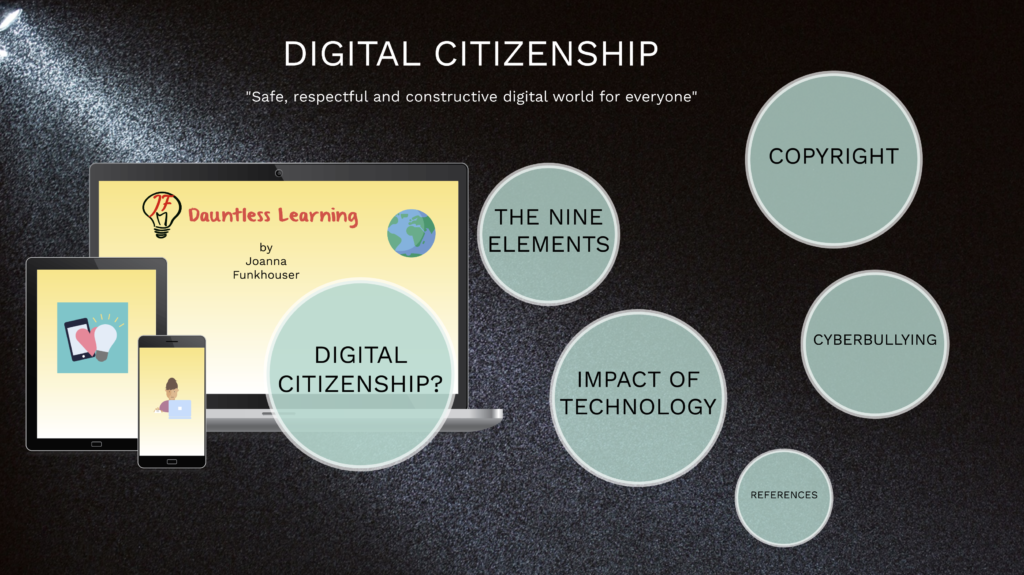Informing ourselves about Digital Citizenship is not an easy task; it requires continuous education as its implications in ours and our students’ lives are constantly changing. If you have the opportunity to dive into digital citizenship through a class, or study it on your own, make sure to aim to the big ideas listed below. Check the resources in each section and other blog posts that I have done on the topic as starter points.
1. The significance of digital citizenship and its issues.
-Common sense education on digital citizenship. Everything educators need to empower the next generation of digital citizens.
-Digizen website. Provides information for educators, parents, caregivers, and young people. It is used to strengthen their awareness and understanding of what digital citizenship is, encouraging users to become responsible DIGItal citiZENS.
–Google’s Be Internet Awesome website. Includes resources to help kids be safe, confident explorers of the online world.
–Edutopia’s “Digital Citizenship: Resource Roundup.” A collection of articles, videos, and other resources on internet safety, cyberbullying, digital responsibility, and media and digital literacy.
2. The nine elements of digital citizenship
-Mike Ribble’s Digital Citizenship website. Provides resources to use technology appropriately.
-Blog post: If you think you know about digital citizenship think twice. Funkhouser (2019).
3. Digital footprint – understanding the impact of the use of technology in our lives.
-Blog post: Life after the internet. Funkhouser (2015).
-An introduction to net neutrality. Marshal Data.
-Beware online “filter bubbles.” TED2011. Pariser, E. –Did Facebook’s big new study kill my filter bubble thesis? Pariser, E. (2015).
-Federal Communications Commission (2015). Open internet.
-What net neutrality means for students and Educators. Long, C. (2015).
-13 Things you need to know about the FCC’s net neutrality regulation. Reardon, M. (2015).
4. Copyright and the legal implications
-Blog post: Copyright, fair use and creative commons: what you need to know. Funkhouser (2019).
-Blog post: How the use of copyrighted materials affects the teaching and learning-process. Funkhouser (2019).
-Creative Commons. About the licenses web page.
Fair use: The secrets no one tells you. Mccord, G. (2014).
-A 21st century copyright office: The conservative case for reform (white paper). Tepp, S. & Oman, R. (2015).
-United States Copyright Office (2012). Copyright basics (circular 1).
5. Cyberbullying
-Blog post: Cyberbullying: A problem of our time.
A Majority of Teens Have Experienced Some Form of Cyberbullying. Pew Research Center. Anderson, M. (2018).
-Cyberbullying Research Center website.
-Hinduja, S., & Patchin, J. W. (2015). Bullying beyond the Schoolyard: Preventing and responding to cyberbullying. (2nd ed.). Thousand Oaks, CA: Corwin.

